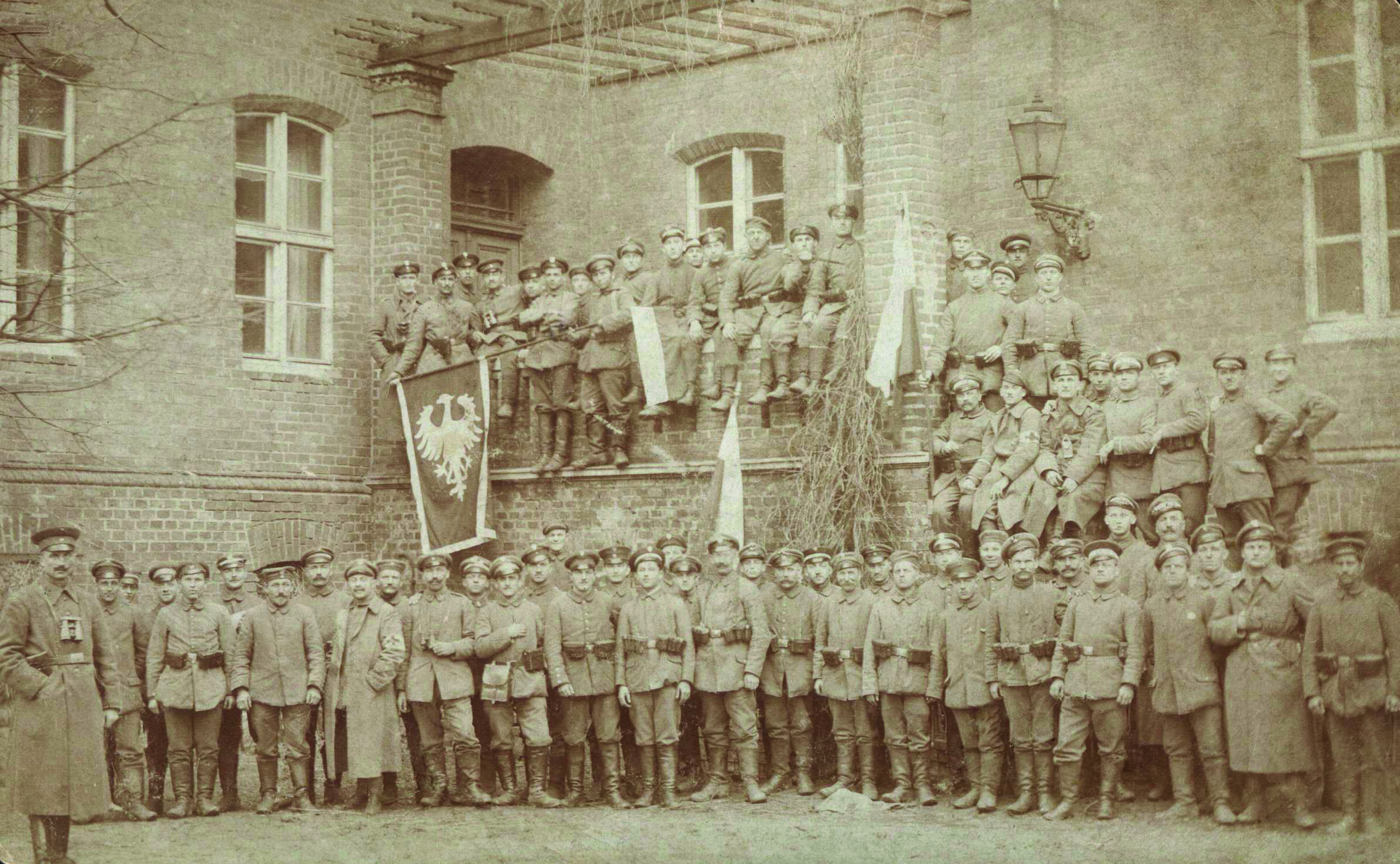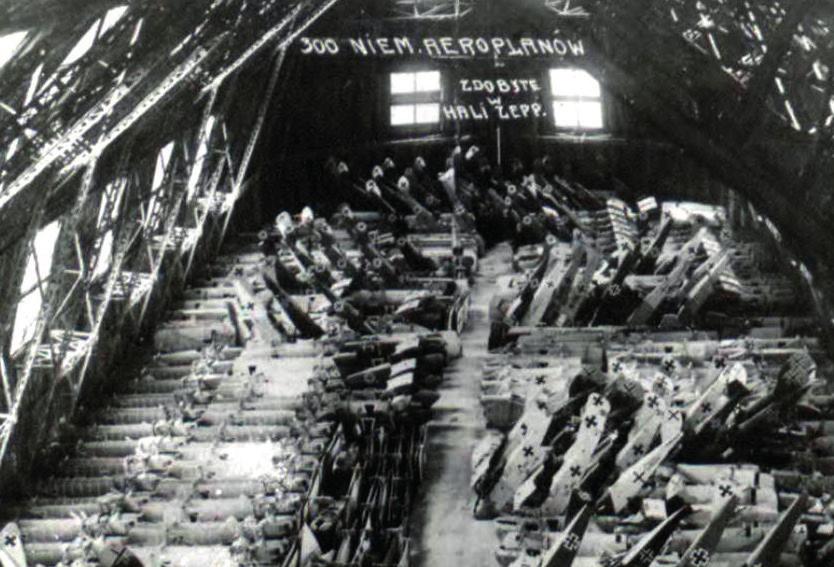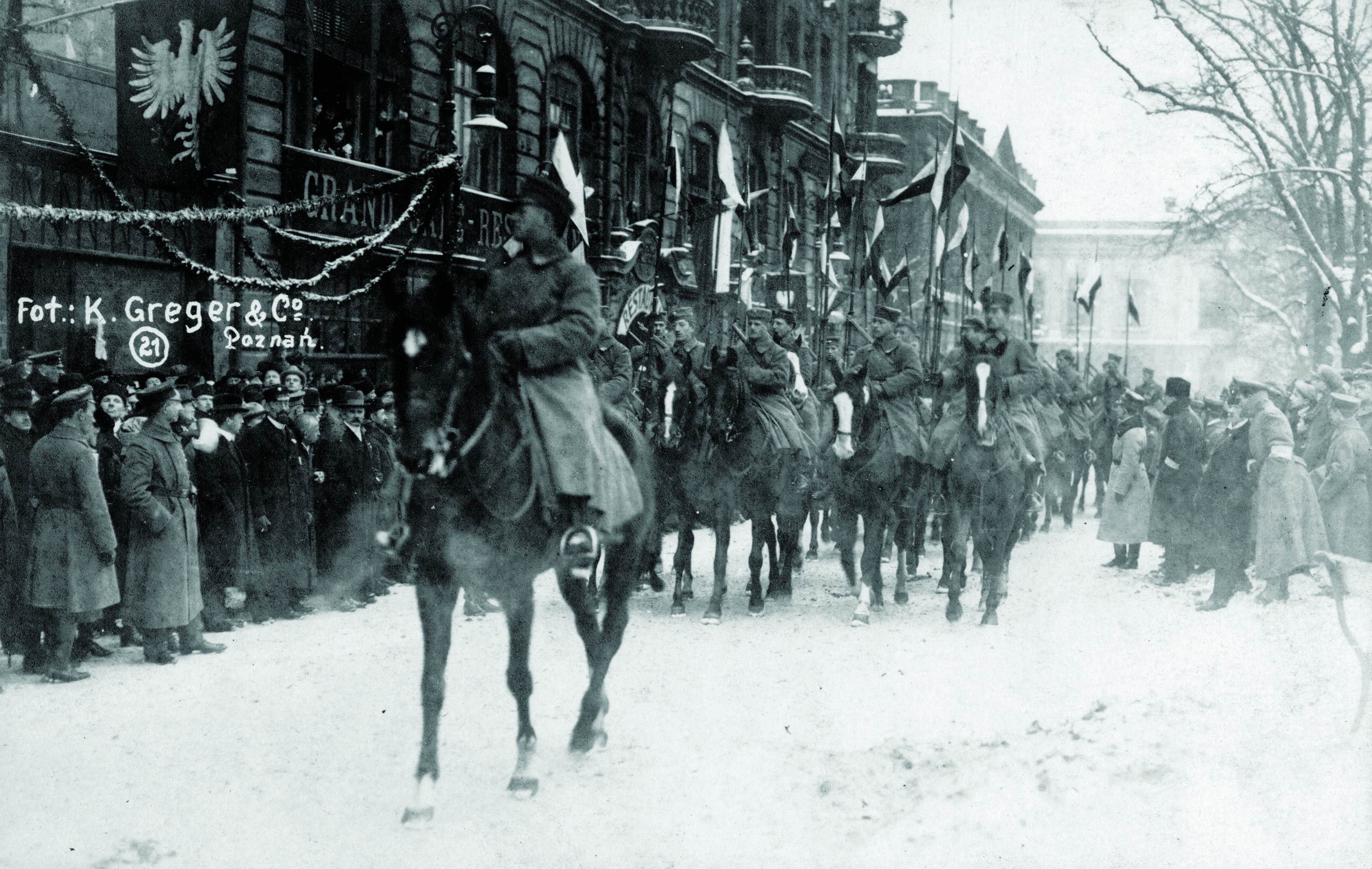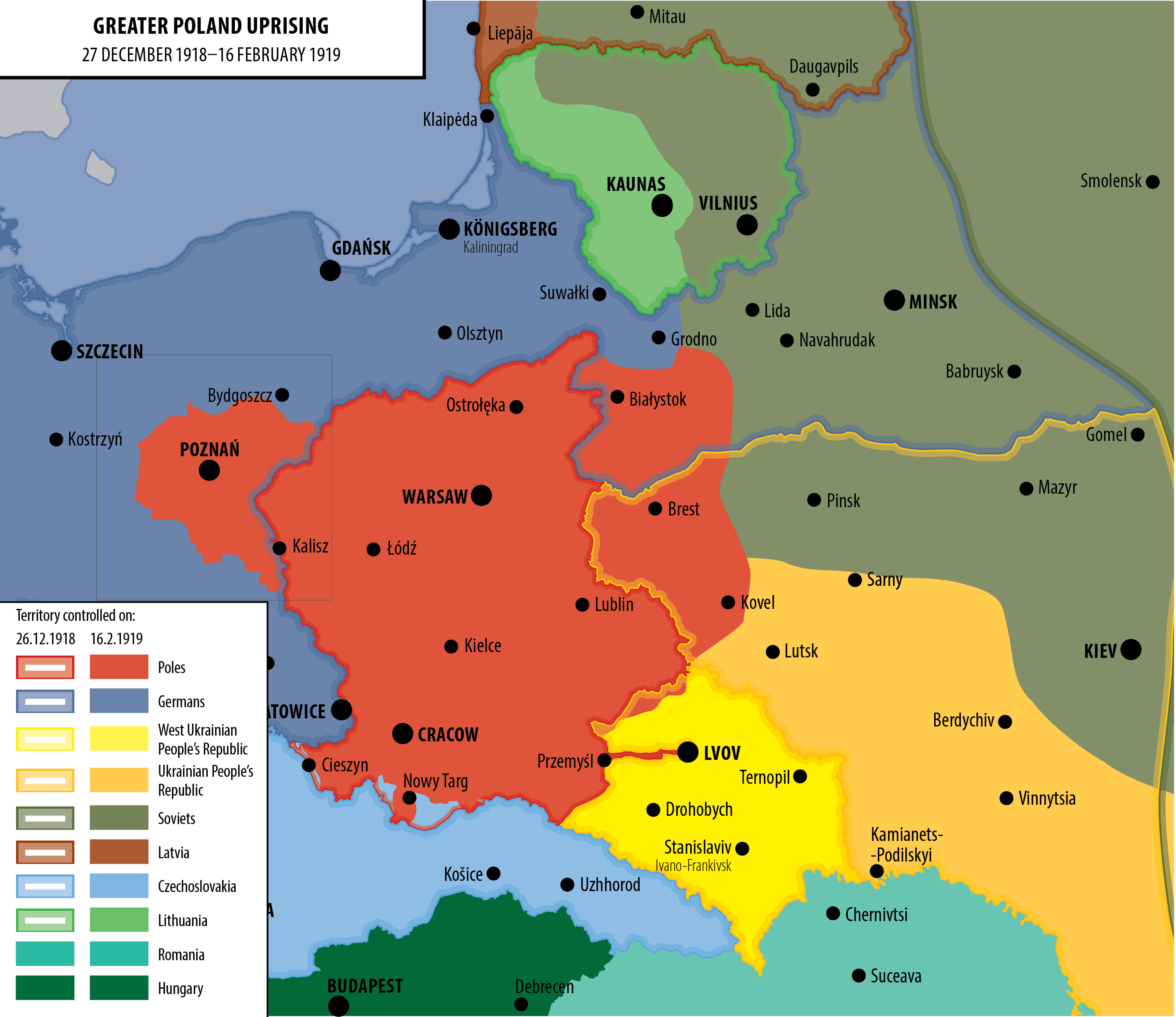

In response to the very tumultuous welcome given to Paderewski — patriotic manifestations and the flying of Polish, English, American, and French flags — the Germans had their troops march through the city. The German soldiers tore down national decorations and shot at the windows of the hotel where the pianist was staying, which was the immediate cause of the outbreak of the Greater Poland Uprising. In Poznań the insurgents took control of, for instance, the Police Presidium, the Main Post Office, the railway station, the Citadel, the Gorman fort, and the arsenal. The Reichswehr Generals were arrested after the insurgents had stormed into the German General Command of the V Army Corps. Almost the entire city was seized in the course of two days. In many places in the province the Prussian administration was removed and control was taken of the police and the railway.
[...] they learned from their spies that Greater Poland had 60,000 rifles, [...] [and] 150,000 soldiers who would fiercely defend their home, even if only with a sickle, an ax, or a knife in hand.
Because of the efforts made by the Polish diplomacy the Entente forced the Germans to sign the armistice in Trier on 16 February 1919. The uncertain status of Greater Poland ended with the Treaty of Versailles, signed on 28 June 1919. Owing to the victorious armed combat and diplomatic efforts almost the entire Poznań Province was incorporated into reborn Poland.



